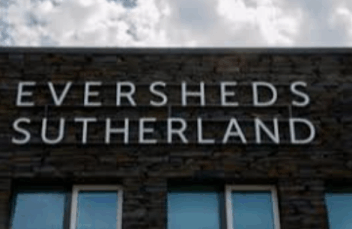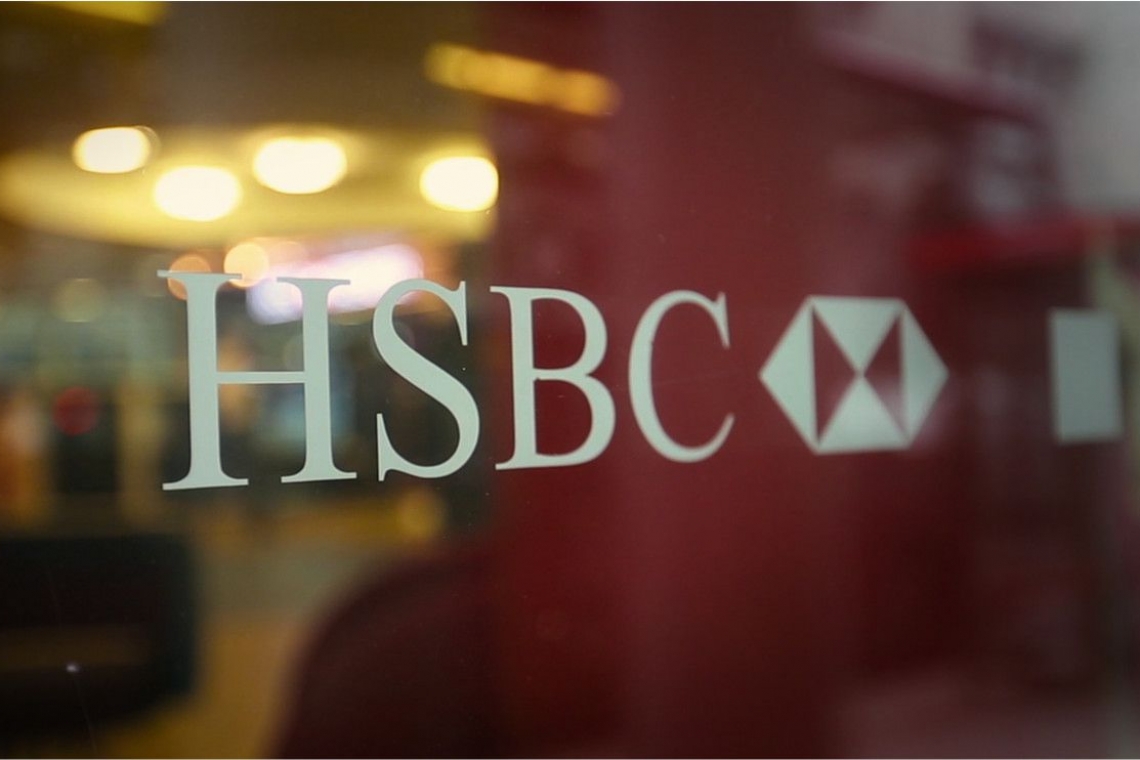Oliver Grant a bungling associate solicitor employed at Eversheds Sutherland LLP a leading UK law firm instructed by HSBC has resorted to agressive defamation, libel, fraudulent representations that has caused reputational harm in order to defend client HSBC from a statutory demand over an unpaid debt sold to a third party.
Financial Fraudster News Investigations can reveal that HSBC instructed Eversheds Sutherland LLP to carry out a libel campaign that contained false representations stating that an individual known as Mr Daley (not his real name) for legal reasons has suffered a collapse in business due to HSBC lawyers falsely informing business associates that Mr Daley had been convicted of dishonesty and had spent time in prison for the same.
 Financial Fraudster News Investigations has been shown court documents that clearly show that bungling HSBC and its lawyer namely Oliver Grant an associate of Eversheds Sutherland (London) have made a serious error defaming the innocent Mr Daley as a dishonest convicted criminal that has now induced the possibility of negligence and libel proceedings in the near future as a result of incompetence and recklessness.
Financial Fraudster News Investigations has been shown court documents that clearly show that bungling HSBC and its lawyer namely Oliver Grant an associate of Eversheds Sutherland (London) have made a serious error defaming the innocent Mr Daley as a dishonest convicted criminal that has now induced the possibility of negligence and libel proceedings in the near future as a result of incompetence and recklessness.
HSBC known to many as the 'criminal bank' is back in the headlines.
HSBC Plc recently reported a rise in profits to $17.2 billion but it was short of analysts expectations and shares fell over 3% following its earnings announcement.
But there are some who feel HSBC can still count itself fortunate for not being more heavily punished over their failure to prevent Mexican and Colombian drug cartels from laundering hundreds of millions of dollars through the U.S. financial system.
HSBC, Europe’s biggest bank, paid a $1.9 billion fine in 2012 to avoid prosecution for allowing at least $881 million in proceeds from the sale of illegal drugs. In addition to facilitating money laundering by drug cartels, evidence was found of HSBC moving money for Saudi banks tied to terrorist groups. Even though federal investigators found evidence “that senior bank officials were complicit in the illegal activity,” no HSBC executives faced charges for their actions. The Wall Street Journal revealed in 2016 that U.S. Justice Department officials, led by President Obama’s former Attorney General Eric Holder, overruled their prosecutors’ recommendation to pursue criminal charges against HSBC in 2012.
Last December, the deferred prosecution agreement (DPA) that HSBC had entered into with the Department of Justice officially expired, providing confirmation that the U.K. bank, which generates the lion’s share of its revenue in Asia, would pay no further penalty for its money-laundering controls.
However, the spotlight has turned back onto HSBC’s money-laundering lapses by “Cartel Bank,” an episode of Netflix’s new corporate-malfeasance documentary series “Dirty Money” specifically devoted to the scandal.
Netflix has not disclosed ratings for “Dirty Money,” which was released January 26, but analysts estimate it is among the most highly rated documentaries in the streaming giant’s history and the series has a 100% rise on Rotten Tomatoes.
Kristi Jacobson, who directed the “Cartel Bank” episode, said she has been pleasantly surprised at the positive reaction to the documentary from inside the financial community. Rejecting claims that HSBC was sufficiently penalized with the $1.9 billion fine it received in 2012, Jacobson said: “The fine they received was equivalent to approximately five weeks of their yearly profit.”
“Since the series has come out, I have talked to a number of people in the financial world who have said to me, ‘This is your best work’ largely because they too were outraged at the lack of legitimate and real accountability. So, I’ve found that it has crossed partisan lines and gone all the way into the financial world,” Jacobson said.
Jacobson’s previous documentary subjects include supermax facility Red Onion State Prison in Virginia (“Solitary”) and starvation (“A Place at the Table”). “Financial corruption isn’t something I’ve previously covered in my work and when I started to learn the details of this case, I was shocked by the corporate malfeasance and the multiple times they were caught breaking the law,” she said.
“I was driven to make documentaries by my understanding of social justice issues and what I view as the brokenness of our criminal justice system. This was a unique and different way to show that brokenness as well as the way that government can work and should work, but doesn’t work,” she said.
In revealing the full extent of the ties between HSBC and Mexico’s Sinaloa Cartel, “Cartel Bank” features contributions from HSBC whistleblower Everett Stern, former U.S. Attorney William Ihlenfeld and Anabel Hernández, a Mexican investigative journalist.
Jacobson added: “It wasn’t just HSBC’s money laundering crimes over many years for the most notorious drug cartels. It was their admission of it and then their audacity to continue to commit those crimes.”
“I felt it was important to make the connection between that conduct and the actual human toll, the deaths of more than 100,000 people in Mexico as a result of drug-related violence and the disruption in the U.S. relating to drugs coming across the border and enabling international criminal organizations to operate,” she said.
Jacobson was hired by the project’s executive producer Alex Gibney, the acclaimed Oscar-winning documentary film director. “It’s an appalling story because those bankers were too big to jail,” said Gibney. “We hear a lot about the war on drugs but when you have a bank like HSBC that is literally making drug-dealing possible through money laundering, you wonder why is it they can’t be held to account.”
Jacobson said she couldn’t help but contrast the actions of HSBC with the incarcerated subjects of her Virginia prison documentary “Solidarity” that aired on HBO a year ago. “These are two different sides of the same problem,” she said.
“That experience reflected what I think is the American way — to overpunish in terms of sentences for poor people, people of color, people who are powerless. HSBC was underpunished. A kid busted for marijuana possession can’t get away with saying, ‘I haven’t done a good job and I’ll change my behavior,’ as HSBC was allowed to.”
HSBC did not cooperate with Jacobson on her documentary. When asked for comment, a spokesperson for HSBC said: “In 2012 we apologized unreservedly for the historical weaknesses in our financial crime controls as part of the announcement of the deferred prosecution agreement with the Justice Department.”
“Since then, we have done an enormous amount of work to improve our financial crime controls and procedures, something that the Justice Department acknowledged when releasing us from the DPA on schedule in December.”
“We’re also going to keep investing in risk and compliance so that our controls become even more effective, and our clear aim is to be the industry leader in the fight against financial crime.”
Jacobson said: “We sought HSBC’s participation and they declined. Since the film has been out, I haven’t had any direct contact with them, partly because the facts revealed in the film are documented in the DPA (the Deferred Prosecution Agreement) that HSBC co-wrote and signed, making it as unimpeachable as one can get telling this kind of story.”
“But on the day the trailer came out, they dropped a note to our associate producer noting that the charges had been dropped and that it was important for us to tell that story. That was the last time we heard from them,” she said.
In response to the scandal, HSBC has significantly strengthened its compliance programs and appointed an external corporate monitor.
Despite the heavy financial penalty for HSBC following the scandal, eleven banks have incurred higher fines than them during the last decade. MarketWatch recently revealed that banks have been fined a total of $243 billion since the financial crisis with HSBC paying out $4.5 billion.
HBSC and Eversheds Sutherland LLP have declined to comment.
Links to this article:


